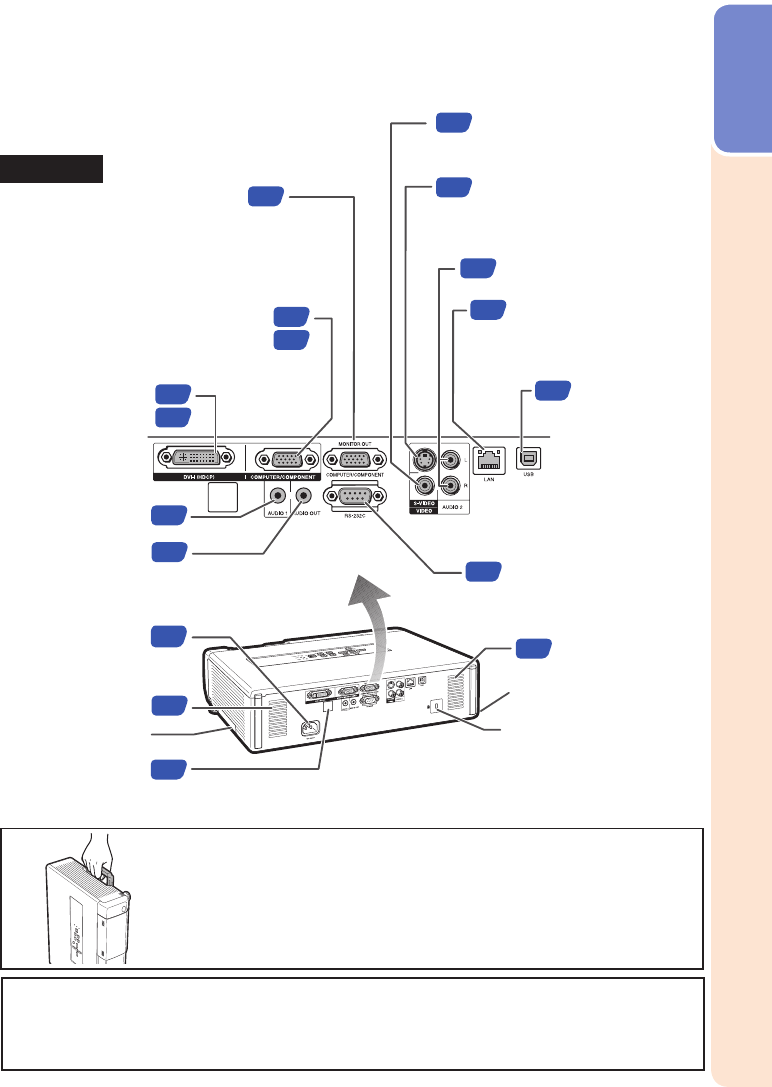
13
Introduction
Numbers in Z refer to the main pages in this operation manual where the
topic is explained.
Rear View
Using the Kensington Lock
This projector has a Kensington Security Standard connector for use with a Kensington
MicroSaver Security System. Refer to the information that came with the system for
instructions on how to use it to secure the projector.
•
Carrying handle
Remote control
sensor
46
34
22
22
21
22
23
23
23
23
23
25
46
21
22
15
25
Terminals
AUDIO 2 input terminal
S-VIDEO input terminal
Terminal for connecting video
equipment with an
S-video terminal.
VIDEO input terminal
Terminal for connecting
video equipment.
Kensington Security
Standard connector
AC socket
Connect the
supplied power cord.
AUDIO OUT
terminal
Audio output terminal of equipment
connected to the audio input terminal.
AUDIO 1 input
terminal
DVI-I input
terminal
Terminal for DVI
digital, computer
RGB and
component signals.
LAN terminal
Terminal for controlling the
projector using a computer
via network.
RS-232C terminal
Terminal for controlling the
projector using a computer.
COMPUTER/COMPONENT input
terminal
Terminal for computer RGB and
component signals.
USB terminal
Terminal
connecting with
the USB terminal
on the computer
for using the
supplied remote
control as the
computer mouse.
MONITOR OUT terminal
(Output terminal for computer
RGB, component and DVI analog
signals. Shared for COMPUTER/
COMPONENT and DVI-I)
Terminal for connecting a monitor.
Speaker
Speaker
Security bar
Using the Carrying Handle
When transporting the projector, carry it by the carrying handle on the
side.
Always close the lens shutter to prevent damage to the lens when
transporting the projector.
Do not lift or carry the projector by the lens as this may damage the
lens.
•
•


















